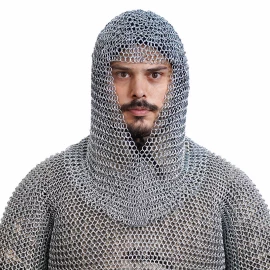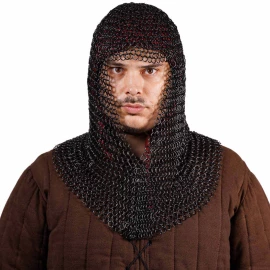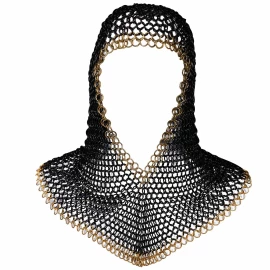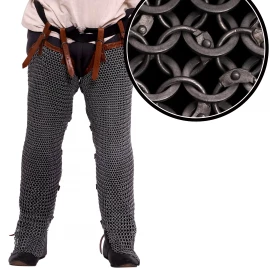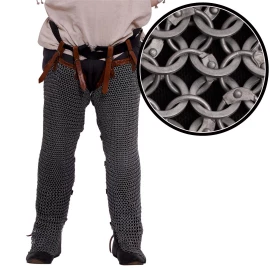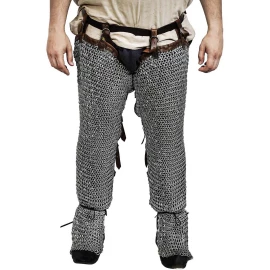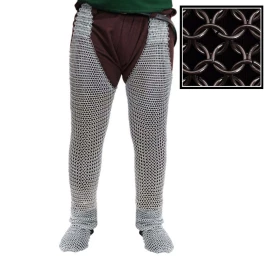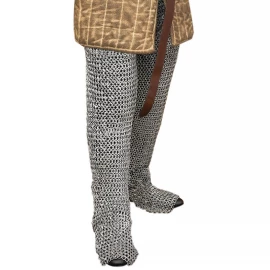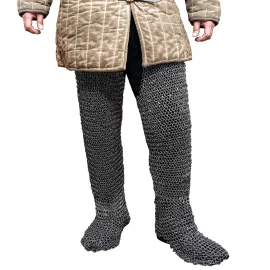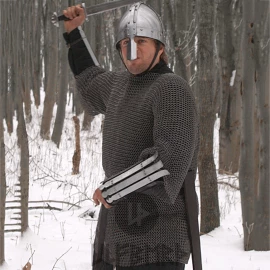Chainmail armour
Mail armour was worn by knights in the Early Middle Ages. It (was) is composed of miniature metal rings. Its production is (was) very labour intensive. You will find mail shirts, mail gauntlets, mail shoulders and also metal rings in our e-shop. You can make a mail shirt from metal rings alone.
Filter products
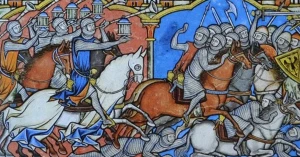
Chainmail armour
Significant arms industry didn’t exist in Europe (except Byzantium) after the downfall of the Western Roman Empire. Therefore the value of mail armour increased. Mail armour was widespread in Europe in the Early Middle Ages not too much. The European mail armour covered an increasingly larger surface of the body - in contrast to the Roman mail armour. Mail armour was an important part of the equipment of knight in the 12th and 13 century. Also mail mittens, great helmet and coif used besides mail shirt. Complete medieval mail armour protected the largest part of the body and was consisted of several tens of thousands of steel rings. The ends of the rings are riveted or soldered together. Therefore mail shirt lasted for a long time.
A gambeson was worn under mail armour as additional textile protection in High Middle Ages. This protective function was improved.
The production of mail armour was very laborious and costly. This was reflected in its price. The price of the mail shirt was comparable to a dozen cows. Therefore only the rich nobility (sometimes the clerics) could buy this shirt. Producers of mail armour were united in guilds. Germany is considered a center of European production of mail armour.

